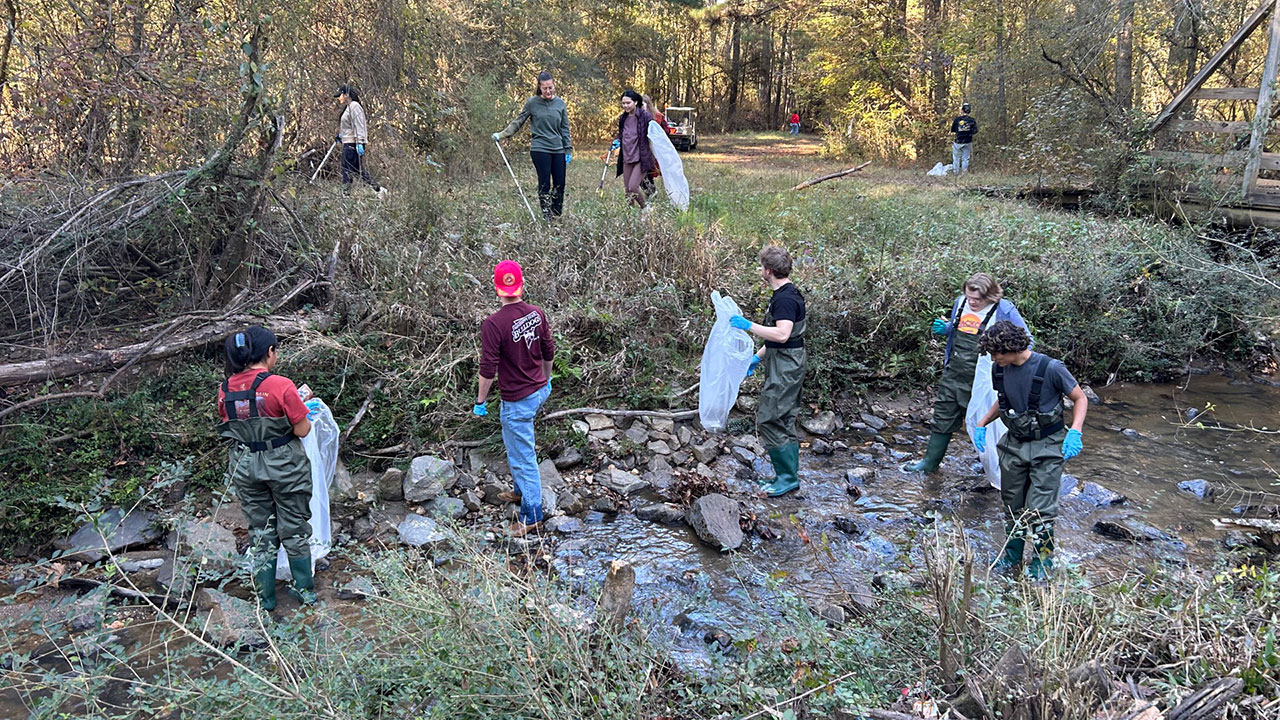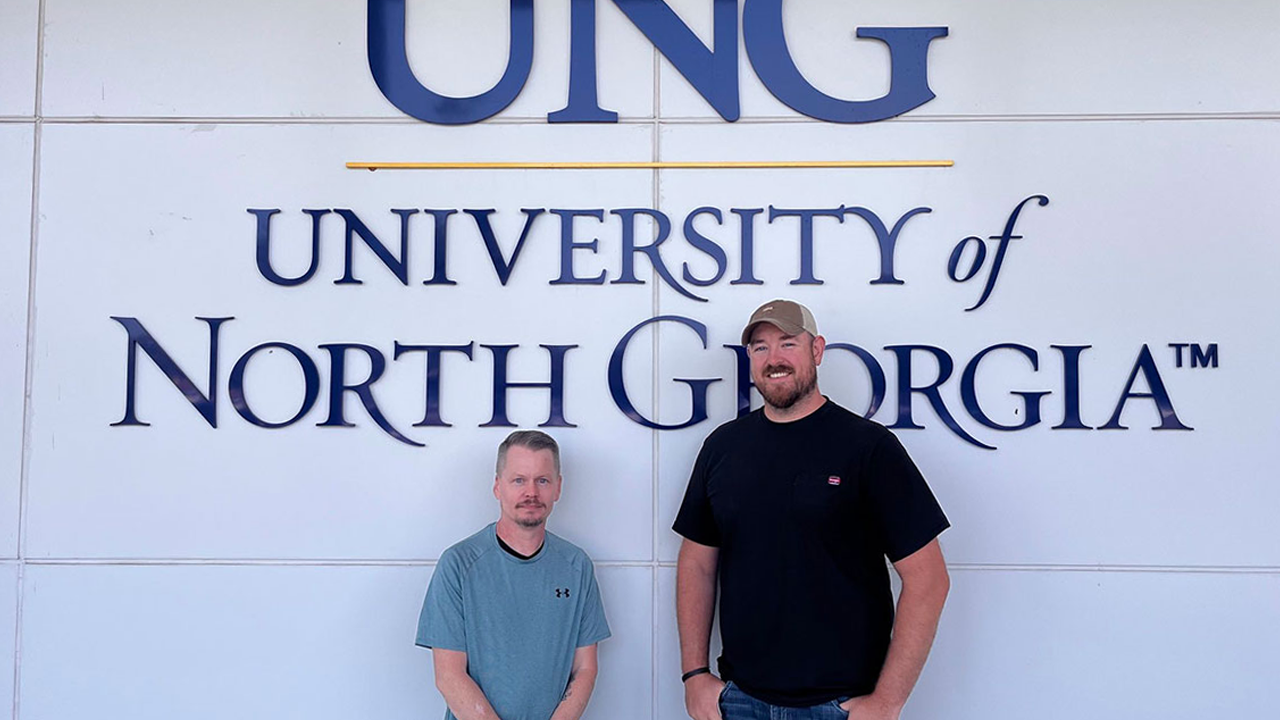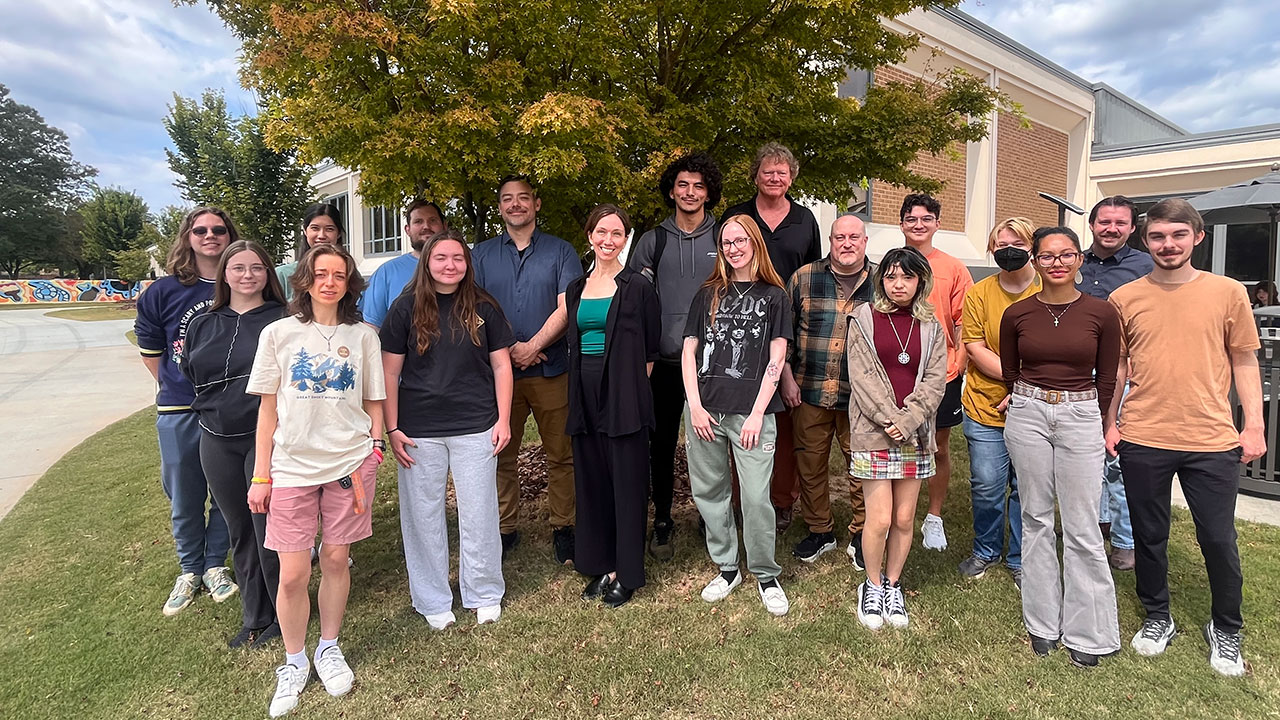Lewis F. Rogers Institute for Environmental & Spatial Analysis
The Lewis F. Rogers Institute for Environmental and Spatial Analysis (IESA) promotes environmental education through interdisciplinary instruction and collaborative learning. IESA is designed for inquisitive minds craving to cast a brighter light upon Earth's many mysterious eon-spanning processes. The curriculum directs students to discover and explore new focus areas within geoscience such as environmental-health, -engineering, -education, -urban planning, and community development. During their experience, students will earn work-ready training through internships, community service, and research projects that will carry them confidently forward to fulfilling employment or reputable graduate schools.
Academics Opportunities Video Data Collection Class Video
IESA also participates in the Academic Common Market, where out-of-state students can qualify for in-state tuition when enrolling in select degree programs. Learn more about the Academic Common Market.
Support an IESA Student Today
Nurture a brighter future for an aspiring GIS expert by donating to the scholarship fund for IESA students, established by the UNG Foundation.

Recipient of United States Geospatial Intelligence Foundation Accreditation

Recipient of the Applying Geospatial and Engineering Technology Grant.

Recipient of Environmental Education Grant Program (Region 4)

Educational affiliate with the National Geospatial Technology Center of Excellence (GeoTech Center).

Member of the Consortium of Universities for the Advancement of Hydrologic Science, Inc. (CUAHSI).
Join a Student Club!
Visit these clubs to experience the rewards of networking with like-minded individuals and cultivating a united community.
Geospatial Alliance Club
Meets every Monday at noon on the Gainesville campus, Arts and Technology building, Room 1908.
Faculty Advisors
President
- Ashley Annis
Vice President
- Alec Reeb
Treasurer
- Brianna Carrera
Secretary/Room Reserver
- Morgan Reimann
Outreach
- Albany Zavarce
- Abby Hightower
- Kacper Michalak
- Justin Kemp
Excursion Officers
- Laken Ferrell




Student Chapter of the
American Institute for Professional Geologists
Location
Advisor
Students for Environmental Awareness (SEA)
Location
Advisor





